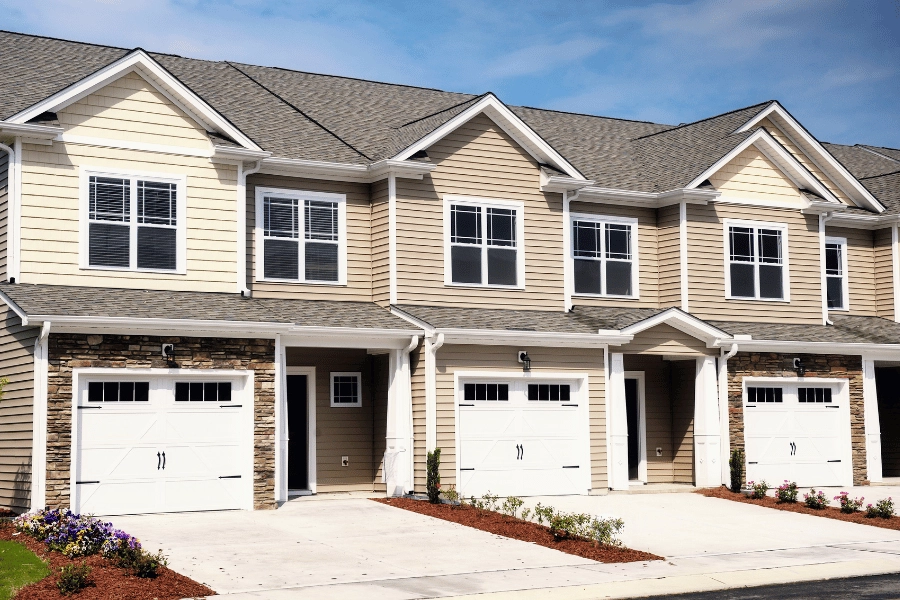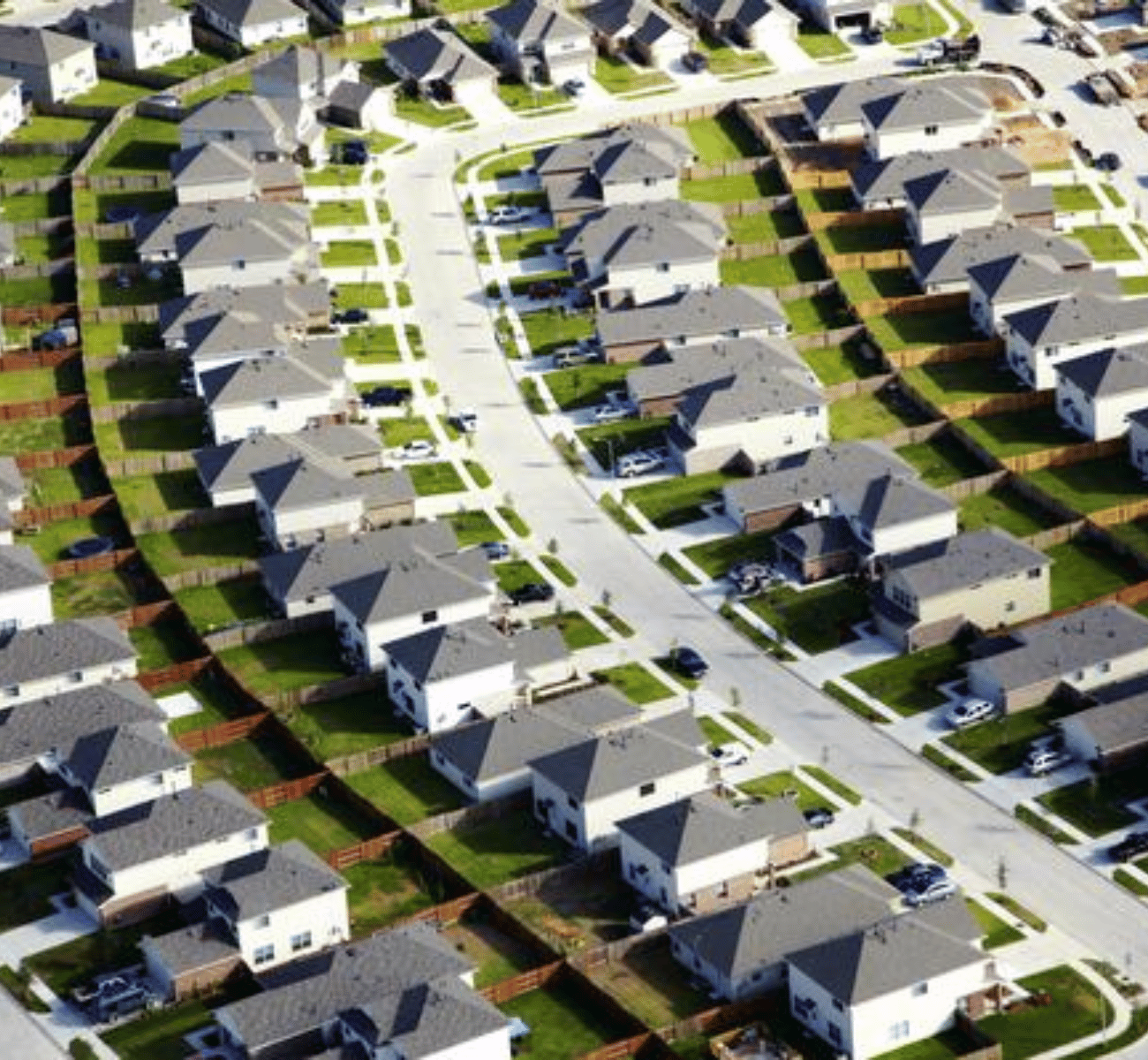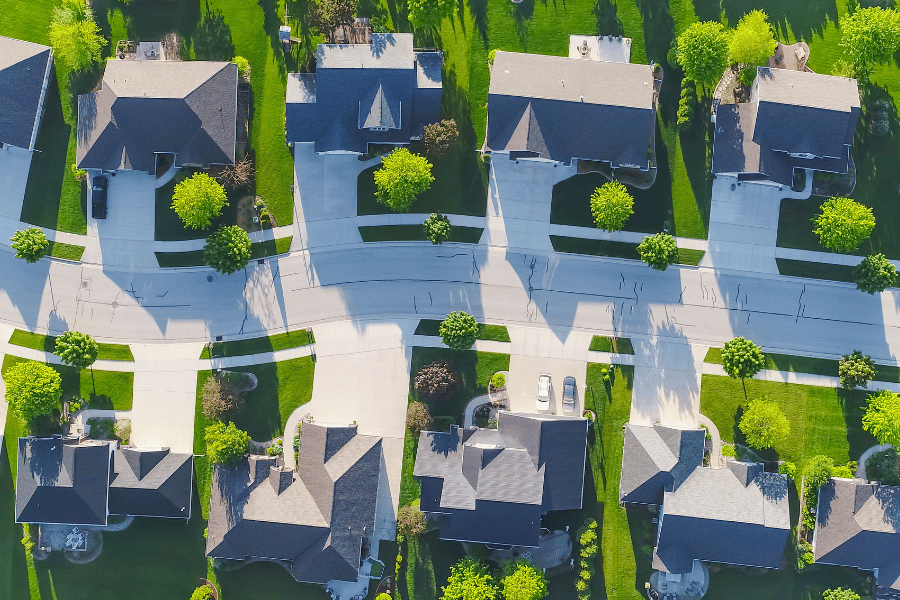Average HOA Fees: How Much Are They?
Are you considering moving to a neighborhood with an HOA and want to learn more about how much it will cost? Here is what you need to know about average HOA fees.
Moving to a new neighborhood is an exciting milestone, but if you're considering a community governed by a Homeowners Association (HOA), understanding the associated fees is crucial to making an informed decision.
A homeowner's association (HOA) is an organization that creates and enforces rules and regulations in a neighborhood, community, subdivision, or residential building. Homeowners pay the HOA each month or year for maintenance and upkeep in the neighborhood.
The fees paid to an HOA will vary greatly depending on the neighborhood, type of HOA, location, and many other factors. While searching for your next home, research the HOA fees in your desired neighborhood or condo complex. You don't want to buy a house and run into hidden fees without being prepared.
It is vital to understand the average HOA fee in your area to ensure you aren't paying too much in fees. Many homeowners join their HOA to provide more control over the rules and regulations set in the community.
This comprehensive guide will walk you through everything you need to know about HOA fees in North Carolina.
1. What Is a Homeowners Association (HOA)?
A Homeowner's Association (HOA) is an organization that governs a residential community. It is typically established when a neighborhood is developed. The HOA is usually run by a board of property owners whom other residents in the community elect.
An HOA community association collects monthly or yearly fees from its residents to help maintain the community. This governing body creates and enforces community rules, maintains common areas, and manages shared amenities.
The HOA has pros and cons and sets specific rules and regulations that all community members must follow. The rules are called Covenants, Conditions, and Restrictions (CC&Rs).
The rules can include anything from the number of pets you can have to the number of cars you can park in front of your home. How much power an HOA has will depend on the association it is under. Some HOAs are only responsible for community grounds or buildings, and others have more say over your home.
HOAs exist to preserve property values, maintain community standards, and provide services that individual homeowners would otherwise need to handle themselves.
Whether you're looking at a single-family home development, townhouse complex, or condominium community, if there are shared spaces or amenities, there's likely an HOA managing them.

2. Who Lives in HOA Communities?
Since the mid-1800s, HOAs have grown tremendously, and many homes are part of an HOA. 53% of American homeowners live in HOA communities, representing approximately 74.2 million Americans.
Over 40 million households live in HOAs, representing over 370,000 homeowner associations in the United States. HOAs include multi-family homes, condos, townhomes, and co-ops.
An HOA is a nonprofit, although the community pays monthly or yearly dues to cover expenses. With over 15,000 homeowner associations, North Carolina has one of the highest percentages of homes in HOAs.

3. Average HOA Fees in North Carolina
Understanding the financial commitment is essential when considering an HOA community. The range of HOA fees in North Carolina varies considerably based on several factors:
North Carolina HOA Fee Ranges:
- Each resident pays between $100 and $1,000, with the average typically between $200 and $300 per month
- North Carolinians pay an average of $385 each month on their HOA fees, which totals approximately $4,620 annually
The average monthly HOA fee in the country is $259, but this amount will vary depending on the type of community, the amenities, and the services provided. The average HOA fee in NC is $385. This means you will save more money living in an NC HOA than in other states.
You must pay the HOA fees if you live in a neighborhood with an HOA. However, some HOAs don't require members to pay for everything. For example, if your neighborhood has a pool or golf course, you can opt out of paying for those. This will mean you cannot use them unless a paying member accompanies you.
If you are considering living in one of the best places in North Carolina, be prepared to pay higher HOA fees. However, these cities and towns have amazing neighborhoods requiring much upkeep.
4. What Are You Paying For?
HOA fees fund specific services and amenities that benefit the entire community. Typically, all the services fall under neighborhood upkeep and maintenance. This will include home improvement, maintenance and repairs, association insurance, municipal services, amenities, and reserve funds.
Upon signing for homeownership rights, you agree to abide by the HOA rules, which apply to all community members, whether they rent or own. Here's what your monthly dues typically cover:
Maintenance and Upkeep
Most HOA fees focus on ensuring communal areas and sidewalks are well-kept year-round. HOA fees cover shared facilities, amenities, lobbies, hallways, roads, and parking areas.
Amenities and Recreation
Homeowners associations often provide extra amenities, such as swimming pools, tennis courts, gyms, and security staff. You'll have access to valuable amenities, such as a fitness center, playground, or pool.
Administrative and Management Services
HOA management fees cover a range of services, including financial management, administrative support, maintenance coordination, and resident communication.
Utilities (Sometimes)
While the specifics can vary widely from one community to another, HOA fees rarely cover all utilities, but may include some, particularly in condominium communities. Water, sewer, and trash services are more commonly included in HOA fees than electricity or gas.
Reserve Funds
The reserve fund is money allocated from the HOA budget to cover future repairs and maintenance of common areas. This ensures that major repairs or improvements don't result in unexpectedly large bills for homeowners.
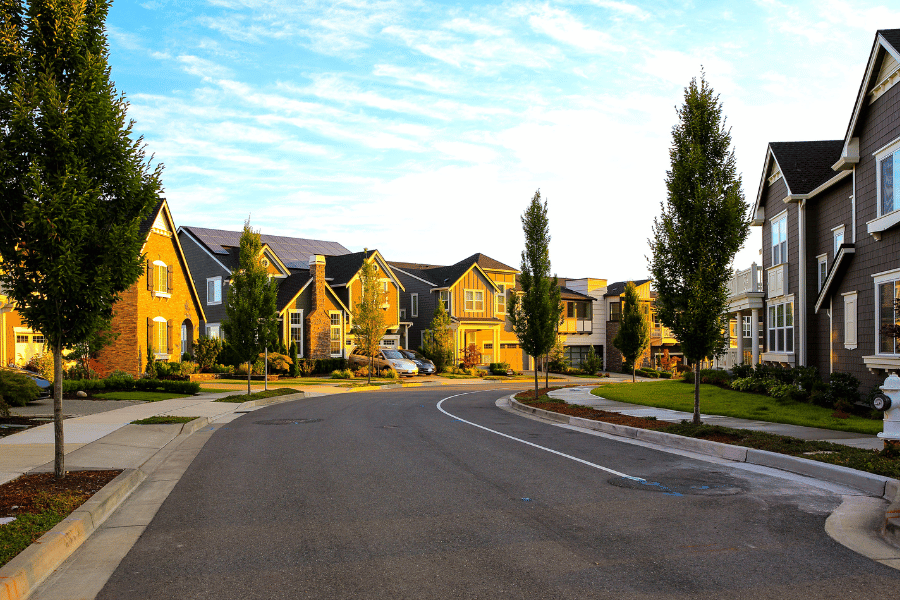
5. How Are HOA Fees Determined?
Understanding how your HOA calculates fees can help you anticipate potential changes and assess whether the fees are reasonable for your community.
A voting board of the HOA usually determines the dues. This committee votes on where the money should go, how much, and when fees are due.
To join an HOA, you must be voted on by your community members. Depending on your state's laws, the current HOA board may have to inform community members within a few days before the annual meeting to vote on who may join.
If you rent a property, check with your HOA because some allow non-owners to join. This is a great way to learn more about the community and set you up to buy your own home.
While about 30% to 40% of HOAs are self-managed, the market for professional community managers has grown. There are about 8,500 community association management companies nationwide.
The North Carolina and South Carolina Community Association Management manages most HOAs. They ensure HOAs comply with state and federal laws while staying financially stable.
If you do not comply with the rules and restrictions placed by your HOA, they can levy a fine against you as a resident. If you cannot or refuse to pay a fine, some HOAs may suspend your privileges to specific amenities until the fine is paid.
If a community member racks up unpaid fees, the HOA can put a lien on the house. This means that if it is sold, the lien has to be paid before the buyer can pay the owner.
In extreme cases, an HOA has the right to file a lawsuit or even foreclosure, in which the HOA is forced to sell a home to pay the unpaid dues.
Several factors influence HOA fee determination:
Community Type and Size
Larger communities can often spread costs across more residents, potentially lowering individual fees. Conversely, smaller communities or those with extensive amenities may have higher per-household costs.
Amenities and Services Offered
Communities with pools, tennis courts, fitness centers, security services, or extensive landscaping will naturally have higher fees than those with minimal shared amenities.
Age and Condition of the Community
Newer communities might initially have lower maintenance costs, but older communities may need more frequent repairs and updates, which can affect fee structures.
Local Market Conditions
Costs for landscaping, utilities, insurance, and contractor services vary by location and can impact overall HOA budgets.
Reserve Fund Requirements
Responsible HOAs build reserve funds for future major expenses. Communities with adequate reserves may have more stable fees, while those playing catch-up might see increases.

6. Is an HOA Worth It?
When considering a home in an HOA community, evaluate the fees against the benefits:
Potential Benefits:
- Professional maintenance of common areas
- Access to amenities you might not afford individually
- Consistent neighborhood appearance and standards
- Maintenance tasks that can be a hassle, like mowing the lawn and clearing snow, are taken care of
- Potential property value protection
Considerations:
- Monthly financial commitment beyond your mortgage
- Less control over community decisions
- Potential for fee increases or special assessments
- Rules and restrictions on property modifications
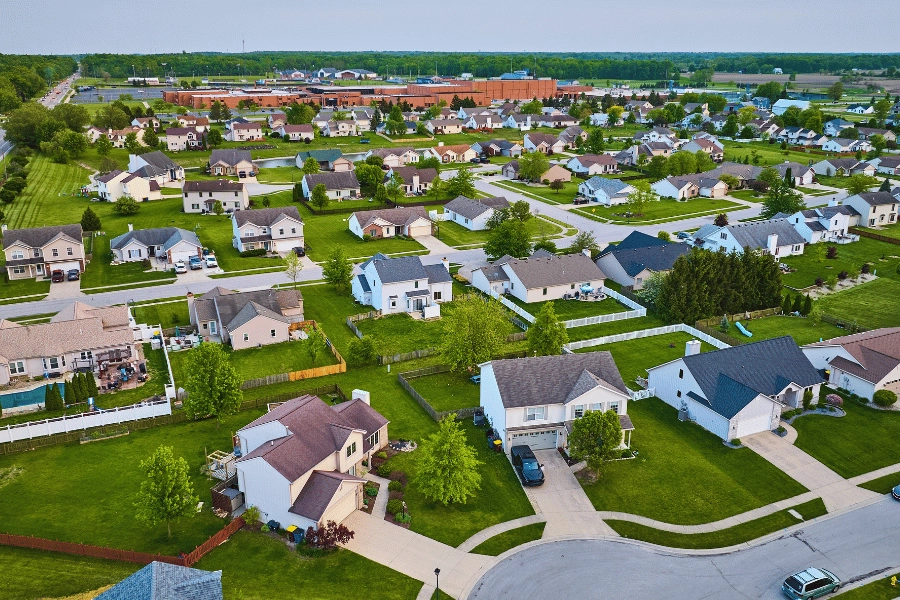
Methodology
Data was sourced from the National Association of Realtors and HOA USA to determine average HOA fees.
FAQs
Where are the highest HOA fees?
Honolulu, Hawaii, has the highest HOA fees in the United States, with a median monthly fee of $520.
What is the average HOA in North Carolina?
HOA fees vary drastically from neighborhood to neighborhood. The average North Carolina resident pays between $100 and $1,000 monthly, and most residents pay about $385 in HOA fees.
Why do people join HOAs?
Many residents decide to join their HOA to have more control and say over community rules and maintenance. The HOA will directly impact you as a homeowner, and it is essential to many homeowners to have a say in what goes on in their community.
Why do HOAs have so much power?
Typically, HOAs are given power when the association grants them rights and privileges. The association will allow the HOA to set its own rules and regulations for the community.
Average HOA Fees - The Bottom Line
There are many pros and cons to consider before buying a home in a neighborhood with an HOA. Being a part of an HOA neighborhood can give you a sense of community, which is extremely important if you are new to the area.
Many HOAs host events where you can meet your neighbors and learn more about your new home. If you are a first-time homeowner, this is a great way to learn the most important things about owning a home.
Before putting down any down payments, check the neighborhood's HOA and figure out as much as possible. From the price of fees to community amenities, you should know what you are getting yourself into.
The key to successful HOA living is understanding what you are getting for your investment. With the correct information and professional guidance, you can find a community that enhances your lifestyle while protecting your investment for years.
Whether you're drawn to the convenience of HOA living or prefer the independence of non-HOA communities, we're here to help you find the perfect home. Contact Raleigh Realty today to explore your options and make an informed decision about your next home purchase in Raleigh.
.png)
